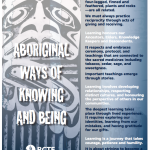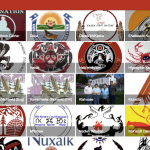
https://vimeo.com/25389165
“Education is what got us here, education will get us out.” – Honourable Justice Murray Sinclair
A succinct overview of the history of residential school and why reconciliation should be important to Canadians is covered by the head of the TRC, Honourable Justice Murray Sinclair. This video is only 2:55 in length and is a good starting point to begin deeper discussions.
The abuse of Indigenous children for 7 generations in the guise of education has caused intergenerational trauma affecting Indigenous people today. There is a huge responsibility for educators to take the lead in educating future generations of this dark history and explore ways to collectively take responsibility for healing, so that we can all move forward.
Murray stresses the importance that, “if you feel connected to the future of this country, and if you feel responsible for the future, then you need to care about reconciliation, for the sake of the future of this country.”




